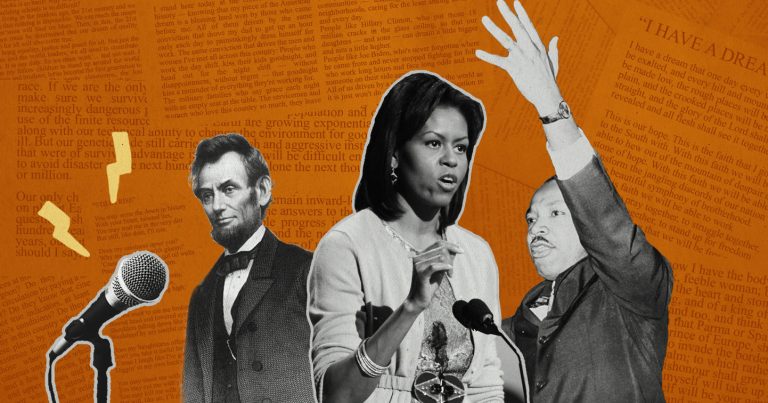NEVER Face Anxiety During a Speech (5 Formulas)
Public speaking anxiety is a challenge that many face—even seasoned speakers! The fear of a quivering voice, shaky hands, or a blank mind can make any speaking opportunity feel overwhelming. But what if there were practical methods to conquer that fear? Here are five easy and effective strategies to ensure that you never have to face anxiety during a speech.
Introduction: A Speaker’s Humbling Experience
Imagine standing on stage, your palms sweating, heart racing, and the CEO waiting to greet you with a skeptical look. That was one of my first professional speeches. I thought I had it covered—dressed in black to hide the sweat stains—but inside, I was a bundle of nerves. If I could go back in time, I’d have applied the following five methods to manage my nerves and perform at my best.
1. Control Your Body to Control Your Voice
One of the biggest reasons for a shaky voice isn’t necessarily fear—it’s often physical tension. When your body is tense, your voice follows suit, making it tremble. Controlling your body’s response is the first step to staying calm.
Example: The Hand Tension Test
Hold your hand out steadily. Now, tense it as hard as you can. Notice the shaking? When your body is tense like this during a speech, the same trembling occurs in your voice. Relaxation is key, and one effective technique to achieve this is box breathing.
Technique: Box Breathing
This breathing method, used by Navy Seals, is highly effective for calming your nervous system:
- Inhale for 4 counts.
- Hold for 4 counts.
- Exhale for 4 counts.
- Hold for 4 counts.
Try this before stepping onto the stage or starting a presentation. Relaxing your body helps ensure that your voice remains steady and confident.
2. Shift Your Mindset to Serve, Not Impress
Our minds are often the biggest obstacles to effective public speaking. Focusing on our own performance creates self-consciousness, increasing anxiety. Instead, switch your mindset from “How will I look?” to “How can I help my audience?”
Example: The Wedding Speech Mindset
Picture yourself giving a heartfelt toast at a friend’s wedding. Rather than focusing on your nerves, think about the joy you want to bring to your friend’s day. When you’re in a mindset of service, you focus outwardly rather than inwardly, easing nervousness.
Practical Tip
Before stepping on stage, remind yourself: I’m here to serve my audience. By taking the spotlight off yourself, you’ll start to feel more relaxed and in control.
3. Embrace the Power of the Pause
One of the best ways to snap out of an anxiety spiral mid-speech is to pause. When we’re nervous, we tend to speed up, rushing through our words to “get it over with.” But this only heightens anxiety.
The Pause Trick
When you feel yourself speaking too quickly, take a deep breath and pause. Then, slow down your rate of speech. Slowing down has two benefits:
- It gives you a chance to calm yourself.
- It shows your audience that you’re confident and in control.
Real-life Example: The Spiral of Doom
Many nervous speakers fall into the “Spiral of Doom,” where they speak faster and feel more nervous, which makes them speed up even more. Breaking this cycle by pausing helps bring you back to a calm, centered state, allowing you to deliver a clear, composed message.
4. Manage Your Adrenaline with Physical Movement
The fight-or-flight response kicks in before any high-stakes situation, flooding the body with adrenaline. This hormone prepares us for physical action—not for standing still and speaking. Excess adrenaline leads to sweaty palms, a racing heart, and shaky hands.
Quick Exercise Tip
To manage this adrenaline, try doing a few push-ups or a brisk walk before your presentation. You’ll expend some of that excess energy, reducing the shakes and helping you feel more grounded. Just make sure you’re doing this outside the audience’s view!
Example: Shaking Hands No More
When I first started speaking, my hands would shake uncontrollably. Now, whenever I feel those jitters before a talk, a quick exercise helps me stay steady, composed, and ready to face the audience.
5. Desensitize Your Triggers with Practice
One of the best long-term strategies for overcoming speaking anxiety is to get comfortable with discomfort. Identify your anxiety triggers—whether it’s speaking in front of a large group, an important client, or even colleagues—and gradually expose yourself to them.
Desensitization Steps
Start small:
- When you’re at a dinner with friends, propose a quick toast.
- Next, try standing up to give your toast—upping the ante slightly.
- Finally, bring this practice to your professional life, such as standing during team meetings or speaking on a Zoom call.
By taking incremental steps, you’ll condition yourself to feel more at ease in any speaking environment. This method has helped countless speakers, and it’s powerful for building lasting confidence.
Bonus Tip: Understand and Respect Your Unique Triggers
Everyone’s triggers are different. For some, it’s the size of the audience; for others, it’s the pressure of a formal setting. Identify what makes you anxious, label it, and work with it. Over time, you’ll find that awareness itself diminishes the intensity of your fear.
Example: Recognizing Fear in Small Moments
If speaking to even a few people makes you nervous, consider each opportunity a training ground. For example, the next time you’re asked to speak up during a meeting, stand and deliver a concise message. This practice helps desensitize fear and strengthens your public speaking ability.
Conclusion: Mastering Your Nerves
Anxiety during a speech is natural, but it doesn’t have to hold you back. By controlling your body, shifting your mindset, embracing pauses, managing adrenaline, and gradually exposing yourself to public speaking, you’ll find that your anxiety transforms into confidence. Apply these methods, and you’ll soon face every audience with calm assurance.
These five strategies are powerful tools to reclaim control over your public speaking experience. With them, you’ll discover that the thrill of connecting with your audience far outweighs any initial nerves.





